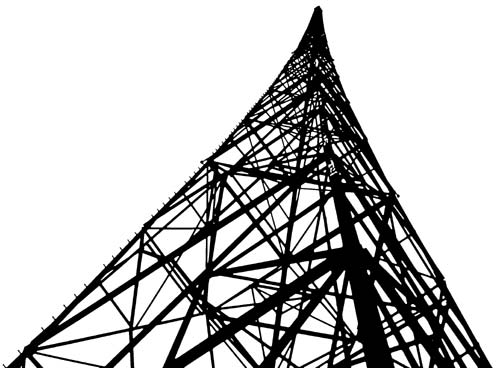
It dawned on me, earlier today, that the current decline in radio and all traditional media in general, is no coincidence. When the radio consolidations took place ten or so years ago, the first thing that was almost always cut or eliminated was the newsroom. Along with that, local programming in general was reduced or replaced with automation.
This, in turn, leads to a bland, uninformative product that the general public doesn’t really care about.
Local newspapers have all but disappeared too. The remaining ones are owned by one of several large newspaper-holding companies like Gannett, Newscorp, Hearst, and Tribune. In a similar radio scenario, local papers were bought up by these companies, newsroom staff was cut, the quality of content declined, and readership declined accordingly. Rinse, and repeat until the paper is nothing but a shell of its former self, filled with mostly used car ads.
But isn’t the internet the cause of all this? No, the internet and the so-called “new media” are filling a void left by the hollowed-out old media. New media, which often relies on people who may be well-intended, but do not have the training in investigative journalism, often lacks credibility when it really counts. Unfortunately, it is easy to search the internet and find articles that lack any type of referenced source material or have other technical problems that call into question the authenticity of the material. Much of this could be corrected with the right links or posting of original documents to back up the story. This is an often pointed to weakness with internet sources of information. There are, however, some outstanding new media outlets, from some surprising locations.
Media outlets (as well as most other businesses) in this country are mostly controlled by big Wall Street banks. Here is how that works:
- Media company A wants to buy some or all of media company B.
- They go to a bank to get a loan.
- After much negotiating and back and forth, the bank agrees to give A the loan, under certain conditions.
- Those conditions include continued performance, annual revenue growth, and periodic audits.
- In a buy-or-be-bought world, there is no other alternative for A, but to agree with those conditions.
- Media company A now needs continued credit to continue to operate their business, this is what happened during the great consolidation, not only of radio but TV and Newspapers as well.
- If and when the conditions of the loan look like they are not being met, the bank sends out its representatives to talk to the owners of media company A.
- They “suggest” moves to improve the bottom line, often offering to make concessions if certain conditions are met, such as installing voice tracking and laying off workers or selling properties
- Newsrooms are cut first as news is labor intensive and does not make any money.
- Slowly, the rest of the staff is reduced or has their pay and hours reduced.
It is thus that the large banksters have gained control of much of the “traditional” media in this country. They have sought to steer the free press into oblivion, substituting, instead, the corporatist media outlets we see today in NBC, ABC, CBS, MSNBC, CNBC, FoxNews, as well as the above-mentioned newspaper holding companies. While skimming over general news items, much of the important news of the day goes unreported. Things like the Fed’s latest round of quantitative easing (QE3), the ever-expanding role of TSA, the unauthorized nature of the Libyan adventure and the possible ties to Goldman Sachs, the continuing nuclear release at Fukushima, FDA approval of GMO seeds, the FCC’s revolving door employees, ever-increasing amounts of police brutality, etc are under-reported or not reported at all.
Why are those particular stories important? Because the implications impact every one of us, only most people don’t know or understand that. Citizens of this country have no idea why things are getting so expensive, why their jobs have disappeared, why their houses are worth less than they paid for them, why the current crop of politicians looks worse than the last crop, why police are dressing like storm troopers and gunning people down in their own homes, etc. It all reminds me of the Pink Floyd song, Sheep:
Harmlessly passing your time in the grassland away
Only dimly aware of a certain unease in the air
We are being fed with little bits of oversimplified, unconnected, and or incomplete information which only fits the narrative the so-called news organization is putting forward. Deviation from the narrative rarely occurs and only under the most unusual circumstances or by accident.
The answer is, of course, to support those independent media outlets that are still around. The independent radio stations, TV stations, and newspapers as well as those online news sources and aggregators that do a good job getting the story out need to stick around. It would also help to increase the number of independent, non-conflicted (interest-wise) sources of information. I would suggest that everyone do a little bit of digging around and find out who, in their own neck of the woods, is an honest source of local news.
If there is not a local independent media outlet, consider starting one. The new LPFM rules are still being worked on, the FCC has promised to speed this along, which means we should see something in the next five years or so. While we wait, consider blogging or teaming up with a group of people to launch an online news site. While I have been blogging for several years, I have learned one very important fact: People love the truth. That is the surest formula for success, tell the truth and back it up with valid sources and documentation. I know many people in the radio news business that, if asked, would be happy to give some pointers on local news gatherings.
One thing is for sure, we can no longer sit around and wait for someone to do something. If we are to change the course of this country, each and every one of us needs to contribute.






Primary-source news reporting with full attribution is expensive, tedious and time-consuming. It would take a whole new subculture of dedicated volunteers to do professional-grade journalistic work for little or no pay. These days, bloggers post observations and readers reply with comments for free because self-expression is its own reward. Traditional news reporting has little to do with self-expression.
That being said, it would be a very good thing if such a network of independent and reliably disciplined citizen-reporters, editors and publishers were to develop. Our present media culture largely lacks the will, the discipline and the motivation.
When I started at 1590, the term “Mr. Rip&Read” was used. Type 19 Teletype machines hooked to Bell System lines running at 110 BAUD relayed Associated Press news releases printed on yellow paper. The engineer on duty was “Mr. Rip&Read”. It was all about FCC regulations as to covering news, public affairs, from the viewpoint of a “public trustee” operating under the doctrine of the public interest, convenience, and necessity. Actually, the coverage of national news wasn’t too bad, although much the same on all stations. Local news was a different story. At 1590, local news was only covered on “News-O-Rama” during the week from 12Noon to 12:15PM. This fulfilled the FCC requirement at the time. Some stations offered between a cent and a dime of their frequency for news tips. These stations had a full-time newsroom with a newsman doing the newscasts. I know that some reading this might say I am a bastion for more regulation, but that’s not the case. The number of media outlets today is global with a keystroke, and the FCC is more concerned with things like EEOC and “public files” which I believe to be baloney. Dedicated broadcasters who love what they do always seem by some strange happening to make money. The result of Bubba’s signature on TA96 changed the whole scenario. Since the domestic broadcast spectrum is limited at this time, nothing will change unless new spectrum is allocated with a covenant that new “real parties of interest” need only apply. Auctions have contributed to speculators and should be abolished. The FCC will argue for the status quo, suggesting Internet Radio Stations. If that is the case, why do we need the FCC any longer?